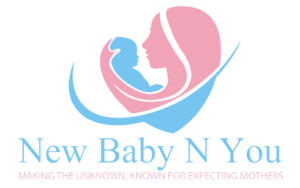A newborn baby gives away distinct snorting and breathing noises. New parents must know about the same before bringing the baby home. The sounds and patterns determine the baby’s health. It indicates whether the newborn snorting breath is normal or requires a visit to the pediatrician.
Knowing The Baby’s Breathing
The first step to distinguishing between healthy and sick babies is checking their breath. The more time the parents spend with the baby, the more they will recognize the breathing patterns. It is the reason why most moms get alerted and express concerns.
The baby’s breathing and newborn snorts vary with every activity. Eating, sleeping, quietly checking their surroundings, etc., will have different sounds. Knowing them well prevents emergency visits to the doctor only to find out nothing is wrong.
Regular Baby Breathing Sounds
Usually, newborn babies make several kinds of noises routinely. These sounds aren’t usually alarming. Some of these are as follows:
-
Gurgling
Newborn babies gurgle when the saliva pools at the back of their mouth. The sound is sweet and pretty common to hear among newborns.
-
Whistling
Newborn babies have a narrow nasal passage. It causes whistling sounds when they draw in a breath.
-
Hiccups
Hiccups are a very common phenomenon in babies. It begins when they are in their mother’s wombs, making them prone to it.
-
Snorting
Parents hear newborn snorts usually during their deep sleep. It happens due to a clogged nose, enlarged tonsils, sleep apnea, etc. While they are usually harmless, parents must note this problem. A stuffy nose can cause discomfort to the toddler.
Periodic Breathing In Newborns
When the newborn is asleep, its breathing pattern gets called periodic breathing. It is normal to notice a cycle of rapid, shallow, and short pauses between breathing, lasting between five to ten seconds.
Although new parents might find it concerning, it generally isn’t. A snorting baby and periodic breathing do not affect the heart rate or baby’s coloring. Let us understand the periodic breathing process in babies as follows:
- Babies lack the carbon dioxide regulatory sensors used by older kids and adults.
- Thus, they stop breathing for up to 15 seconds (sleep apnea occurs until 20 seconds elapse and the baby doesn’t breathe).
- The brain realizes high carbon dioxide levels are present in the body due to not breathing.
- It leads to overcompensation through rapid breathing.
- When the carbon dioxide levels get too low, the brain stops breathing.
- Therefore, the cycle continues till a month of age, as the baby’s nervous system matures.
Newborn Snorting Noises
Newborn snorts usually when they breathe the air in, specifically while crying, feeding, falling into REM sleep, or breathing hard. The following points can better describe the snorting process:
- A baby’s nose is of cartilage and not bones.
- Newborn Faster breathing causes airway turbulence with slower pressure.
- The snorting baby faces swirling air forming a low pressure in the nose.
- This pressure change drops the nostril closer together, generating the snorting sound.
Recognizing The Abnormalities
Once the parents recognize and define the baby’s breathing and snorting patterns, they can easily find abnormalities. Calling the doctor for any unusual activity is critical.
-
Warning Symptoms
Apart from breathing and sound patterns, the following symptoms also require parent’s keen attention:
- A baby suffering from persistent cough, high-pitched barking, and wheezing must go to the doctor to test for croup.
- The rise in temperature or high fever calls for a doctor’s visit.
- Gastrointestinal problems, listlessness, cold-like symptoms, and other illnesses require a doctor’s attention.
- Babies’ ribs stick out due to deeper breathing. It causes significant rises and falls above and below their rib cage.
- A distinct nose flare is another symptom.
- Baby grunts, especially at the end of the breath, must get reported to the doctor.
-
Emergency Care
Apart from these signs, parents must take their babies into emergency care for the following occurrences:
1. The baby stops breathing, or the pauses between breaths last more than 10 seconds.
- It goes limp and is getting challenging to arouse.
- The baby goes blue if it’s cold. Emergency care becomes critical if it doesn’t get pink after warming up.
New parents may find several new things about their babies every day. However, everything is not an alarming mess. Some sounds and noises like newborn snorting are normal and indicate a healthy baby. Issues arise when the patterns break or something completely strange occurs. It prompts parents to avail of urgent care services.
Bottom Line
Newborn babies do several fascinating things for their parents. The newborn snorts and other noises while breathing are precious. Finding a pattern by observing them daily is highly helpful in detecting abnormalities timely.
Staying alert helps parents overcome any obstacles considering their babies. Their pediatrician must consider their queries and concerns to ensure a hassle-free parenting experience.

